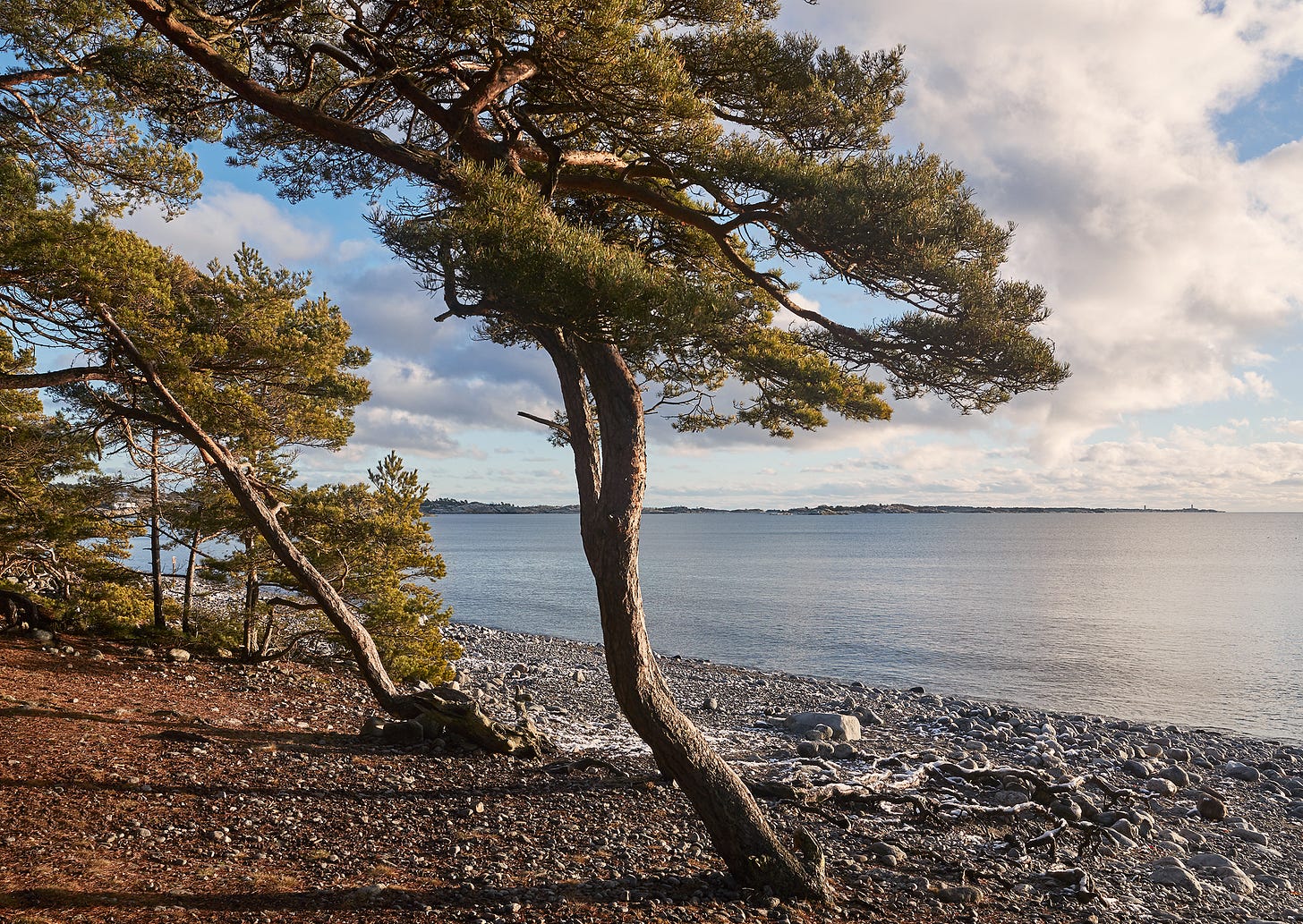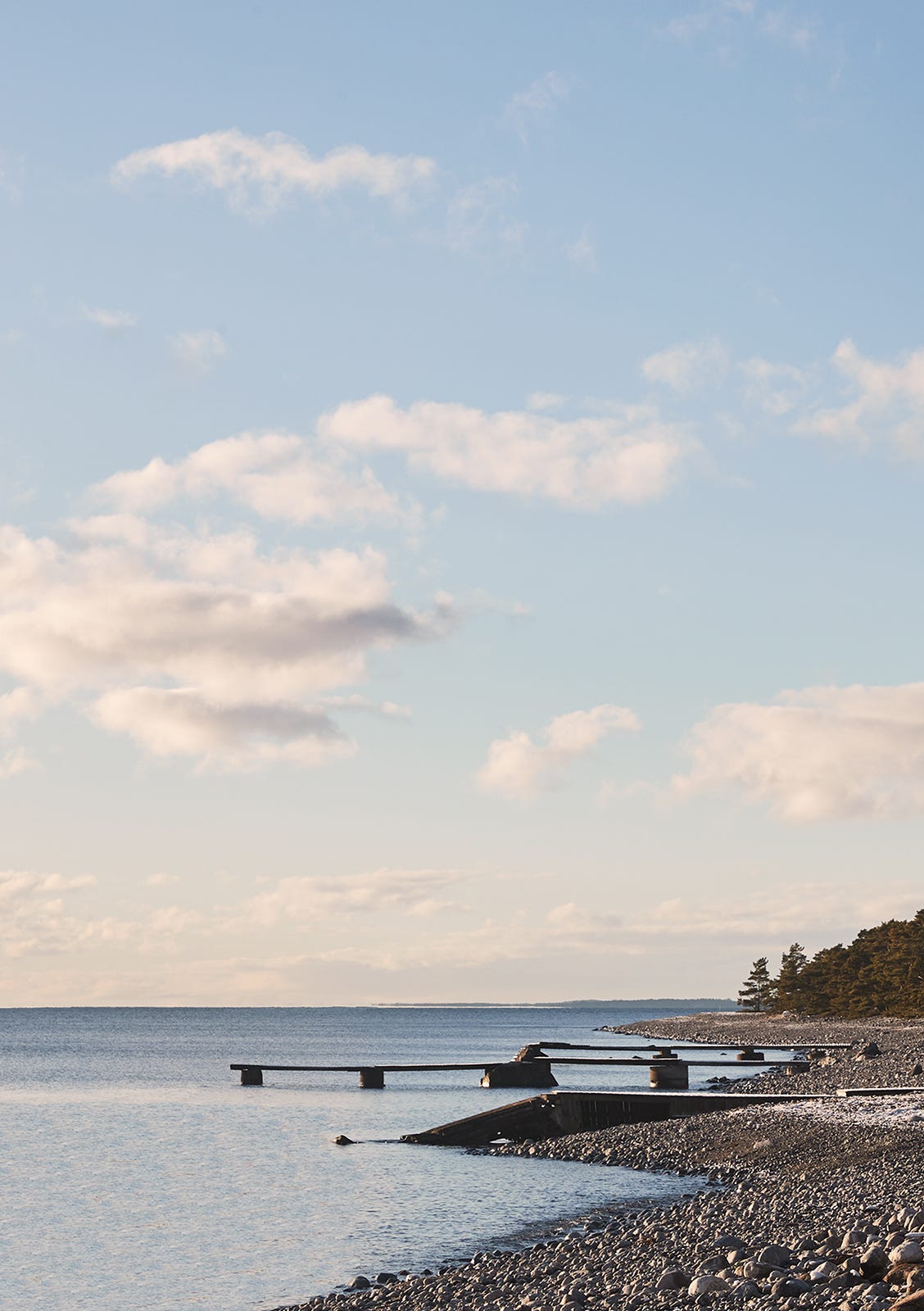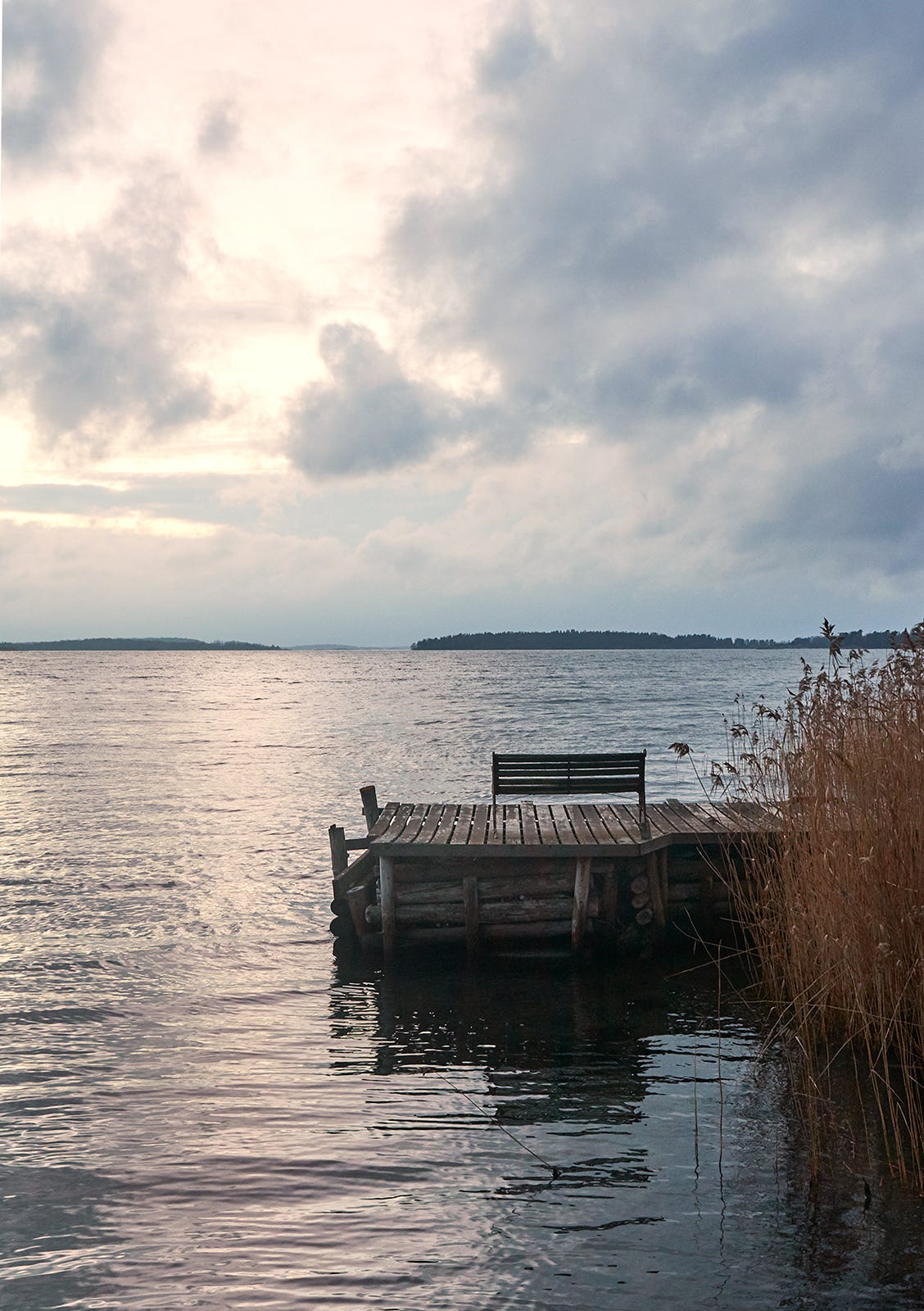After several weeks of doing too much and being in too many places and not being able to rest, I had enough. I decided we should stay in one place, go nowhere and do nothing. Lisö is a peninsula in the southern part of the Stockholm archipelago, and here we’ve rented a house on top of a small hill, overlooking the ocean.
Outside of our (many) windows are ancient pines, and the nearest neighbour is so far away that we can't even see their house. Here, we’ve so far spent almost two weeks, walking the dog, editing the magazine and basically living like monks, not seeing a single person and going to bed at 7.30 pm every night.
The experience has made me reflect on the concept of time. In his debut novel The Sheltering Sky, Paul Bowles writes:
"Death is always on the way, but the fact that you don't know when it will arrive seems to take away from the finiteness of life. It's that terrible precision that we hate so much. But because we don't know, we get to think of life as an inexhaustible well. Yet everything happens a certain number of times, and a very small number, really. How many more times will you remember a certain afternoon of your childhood, some afternoon that's so deeply a part of your being that you can't even conceive of your life without it? Perhaps four or five times more. Perhaps not even. How many more times will you watch the full moon rise? Perhaps twenty. And yet it all seems limitless."
When is the last time in my life I will see pine trees like this? When is the last time I will ever visit Lisö, is it perhaps now? Sociologist Hartmut Rosa has famously claimed that what defines the modern era the most is its constant acceleration. In key areas such as production, communication and transportation, the development is always accelerating, today moving faster than yesterday.
The pace of our times is creating a sense of alienation, while also making us believe that efficiency is all-important. Fashion becoming fast fashion becoming ultra-fast fashion, to briefly summarize the last century’s technological progress and shift into a global consumer society. To combat this, Rosa says that we need to develop the experience of “resonance”.
Resonance can occur in social relationships, between people who love and care for one another. It can be manifested through activities like sports or book clubs, or by coming together in the same religious or spiritual organisation. Think of the feeling you have when you get lost in a good book, an engaging film, or when you see a fascinating artwork. You get lost in time, you’re no longer productive, you resonate with emotions as a reaction to something profound, something greater than yourself.
Staying at Lisö is to experience resonance. Every time I raise my head from the laptop and look out the window at the sea, my mind stops, unprepared for the natural beauty that is all around us. For a moment, I forget what I’m working on and get lost in the view. Resonance is about feeling connected to the world around us, not alienated from it.
This reminds me of another book I read recently, The Disappearance of Rituals by philosopher Byung-Chul Han. He makes the argument that modern time is linear and in the creation of modern society, we have done away with many things of tradition simply because they were not efficient enough. This has made modern people feel lost and lacking context, and so we have tried to replicate what has gone lost by reinventing rituals (like tattooing ourselves or deciding that drinking pumpkin spice latte is a must in October). Rituals are the opposite of linear time, they occur again and again, according to a cyclical understanding of time. Han explains:
“We can define rituals as symbolic techniques of making oneself at home in the world. They transform being-in-the-world into a being-at-home. They turn the world into a reliable place. They are to time what a home is to space.”
And a few pages later:
“Rituals are characterized by repetition. Repetition differs from routine in its capacity to create intensity.”
I think of this as we approach the holiday season. I’ve never enjoyed the holidays, I’ve avoided celebrating them like the plague for decades, including New Year’s Eve. The only good thing about them is that my inbox is calmer, and so I can rest a bit while my colleagues are busy with their families. But this year, I’m approaching the holidays with a new perspective, thinking of how rituals can create a sense of home in time, simply through the act of repetition.
By repeating the traditions of the past, I am subverting the linearity of modernity. It’s a subtle form of resistance, going against the entire modern project, exploring other ways of being and self-identifying than primarily being productive.
For someone brought up in a Lutheran country where the core tenet is that work comes first, that’s quite a revolutionary thought!









